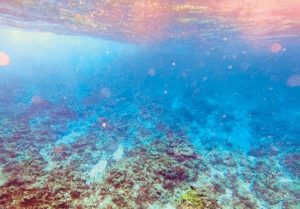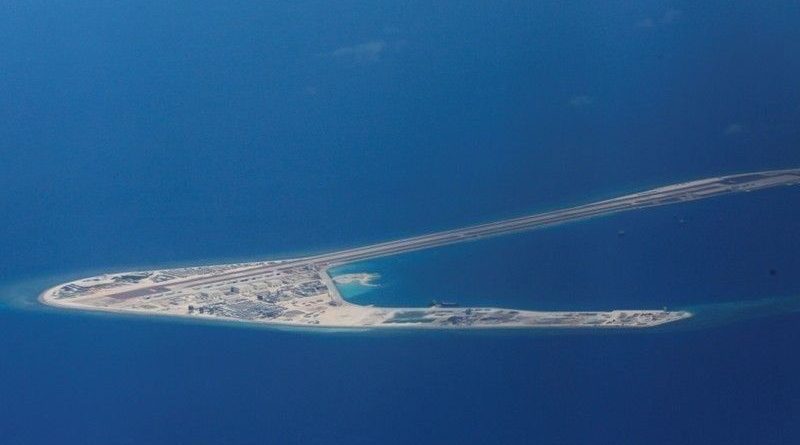Headline | Government mulls environment case vs China over corals

MANILA, Philippines — The Philippines is considering filing a new complaint against China before an international tribunal following the reported harvesting and destruction of corals in the disputed West Philippine Sea.
Solicitor General Menardo Guevarra said yesterday that his office is in the “fact-finding and data gathering stage” in studying its legal options regarding issues on the West Philippine Sea.
“We shall evaluate the merits of each and every legal option, including the possible filing of a new complaint against China before an international tribunal,” he told The STAR in a text message. “These matters require a lot of prudence and circumspection in view of their potential impact on our national interests.”
The Department of Justice (DOJ) has recommended the filing of cases against China over the harvest and destruction of corals in the West Philippine Sea.
Justice Secretary Jesus Crispin Remulla said he will discuss the matter with Executive Secretary Lucas Bersamin at “the soonest possible time.”
He said the case is a “very good” one to file on behalf of the Philippines “for the sake of humanity itself.”
In 2013, the Philippines filed a complaint against China for its massive claims in the South China Sea under its nine-dash line claim.
The Permanent Court of Arbitration, in 2016, ruled in favor of the Philippines, saying the nine-dash line has no legal basis under international law. China, however, refused to recognize the ruling.
The Armed Forces of the Philippines Western Command (AFP-WESCOM) earlier reported the discovery of missing and destroyed corals after Chinese militia vessels left Rozul Reef.
“Tandaan natin, with or without a territorial dispute, the destruction of the environment is a sin against humanity. It’s a very ripe case for adjudication,” Remulla said at a press briefing.
The Philippine government, the DOJ chief said, can tap the best legal experts to help with the case, adding that the country already has a lot of evidence for its case against China since the destruction of coral reefs “has been happening for many years.”
“The matter is ripe for the filing of a case in international tribunals,” he added.
At the Senate, Sen. Risa Hontiveros filed proposed Senate Resolution 804 condemning the massive coral harvesting and urging the appropriate Senate committee to conduct an inquiry into the matter.
“We should seek payment for damages caused by China in the WPS. We will get billions if China is forced to pay. They are robbing our fishermen of their livelihood, they are even destroying our natural resources. If China can pay off all its debts to the Philippines, it will definitely help in the economic crisis we are facing,” Hontiveros said.
Resolution 804 also stated that the government cannot tolerate the continuing harm to the environment, economy and security brought about by China’s incursions, and must explore available resources to hold China accountable, including a claim for damages to be filed with the Court of Arbitration.
Farmers back case
The Philippine Chamber of Agriculture and Food Inc. (PCAFI) on Wednesday said that the government should file a case against those involved in the destruction of coral reefs in Rozul Shoal near Palawan, widely believed to have been perpetrated by the Chinese.
At a press conference, PFACI president Danilo Fausto said the country’s coral reefs are bigger compared to the Great Barrier Reef in Australia.
“Nakakaiyak,” Fausto said when asked after the AFP-WESCOM reported the plunder of corals in Rozul Reef, with Chinese as primary suspects.
The United States – through its top diplomat in the Philippines – has expressed alarm over the destruction of corals in the West Philippine Sea.
“We have more coral reef than the Great Barrier Reef in Australia, 2,500 (individual reefs) I think in Australia, we have 3,500. What is worse is that these are the homes of the fish, the corals. If you cut the corals, they can still grow but in this case, even the roots were removed,” Fausto said.
“We would like to strongly encourage the government to file a case, an environment case against those people who did this. The entire world should know what they are doing to our environment, to our coral reefs, to the future food of our people. They destroyed the coral reefs, that’s below the belt,” he added.
.
For his part, Pambansang Lakas ng Kilusang Mamamalakaya ng Pilipinas (Pamalakaya) national chairman Fernando Hicap said the country should raise the issue to the United Nations General Assembly (UNGA).
“Our call for the Marcos administration is to elevate the issue to the UN General Assembly so that the matter will be discussed. What China did was illegal, arbitrary after it entered our jurisdiction and damaged our resources,” Hicap said.
Foreign Affairs Secretary Enrique Manalo, Environment Secretary Maria Antonia Yulo-Loyzaga and Health Secretary Ted Herbosa lead the Philippine delegation to the 78th session of the UNGA at the UN headquarters in New York City from Sept. 18 to 26, 2023.
At the same time, Hicap backed the statement of the President that the government will implement fishing ban to address overfishing and secure fish stocks.
“We are not against the fishing ban as it is being implemented already during the breeding season of fish in specific areas, not the entire fishing grounds,” he added.
He stressed the need to strictly implement the Fisheries Code of 1998 to ban foreign fishing vessels from encroaching on the country’s fisheries resources.
“At least 80 percent of our imported fish comes from China but the Chinese sourced these in West Philippine Sea. That’s the reason why there is a 70 percent drop in the fish of our local fisherfolk” since 2020, Hicap added.
Further decline is expected amid reports of massive poaching of corals by the Chinese, he said.
Fishers group Tugon Kabuhayan convenor Norberto Chingcuanco said that various fisherfolk organizations support the government campaign to make China accountable for the destruction of coral reefs in West Philippine Sea.
“We are fish farmers, we are not fish hunters, nonetheless, we join the West Philippine Sea alliance, a loose group by private sector aimed to help develop our towns along the coast and to create more activities in the West Philippine Sea. We are very glad that the government is currently pursuing many activities … We have to allow them to take the lead,” Chingcuanco said. ?
.
No harm
At the Philippine Mission to the United Nations in Geneva, the country highlighted the “no harm rule” obligation of states not to harm or pollute marine environment and ensure this is carried out.
The mission took part Tuesday in the proceedings on the request submitted by the Commission of Small Island States (COSIS) to the International Tribunal for the Law of the Sea for advisory opinion that has potential to impact how the United Nations Convention on the Law of the Sea (UNCLOS) is interpreted in the future.
The request is unprecedented for the law of the sea, and is the first such opinion sought on specific issues associated with sea level rise and climate change in general.
Ambassador Maria Angela Ponce, assistant secretary for maritime and oceans affairs of the Department of Foreign Affairs, said the South China Sea arbitration – cited by many states participating in these proceedings – provides determination on the obligation to protect and preserve the marine environment.
“The South China Sea arbitration is legally binding international law, with its proceedings faithfully carried out in accordance with UNCLOS. It has been cited by this Tribunal itself in its Mauritius v. Maldives decision. Its validity cannot be assailed,” Ponce said.
She said the Philippines considers the South China Sea arbitration as “part of customary international law which covers areas within national jurisdiction as well as areas beyond national jurisdiction.”
Ponce said this requires states to take active measures to prevent harm, to “conserve marine living resources” and “preserve the ecological balance of the oceans as a whole.”
She discussed the “no-harm” rule as a customary norm and the obligation of due diligence as an imperative duty.
Carlos Sorreta, Philippine permanent representative to the UN in Geneva, said vulnerability is evident in Philippine coastal and marine ecosystems now deteriorating at alarming rates.
“Studies and reports reveal coastal erosion, bleaching of coral reefs, loss of sea grass and conversion of mangrove areas which, in turn, affect marine resources and the livelihood of our coastal communities,” Sorreta said.
Assistant Solicitor General Gilbert Medrano said the questions posed by COSIS are legal in nature as they require the tribunal to interpret specific provisions of UNCLOS “without implicating any dispute between or among States Parties.” – Bella Cariaso, Cecille Suerte Felipe, Pia Lee-Brago
.



 Memento Maxima Digital Marketing
Memento Maxima Digital Marketing






